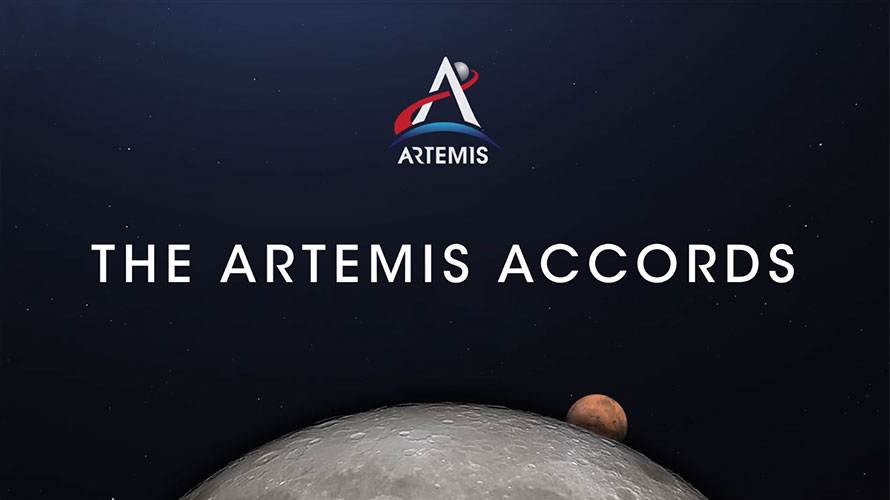The National Space Society applauds NASA’s announcement today that calls for robust agreements (Artemis Accords) with international partners based on a common set of principles governing the exploration and use of outer space, including commercial activities.
“While NASA is leading the Artemis program,” the announcement said, “international partnerships will play a key role in achieving a sustainable and robust presence on the Moon while preparing to conduct a historic human mission to Mars.”
The Artemis Accords constitute a legal framework proposed by the Administration to execute international agreements allowing for the mining of valuable resources, such as water and metals, on the lunar surface. Via the Accords process, the U.S. is seeking agreements with like-minded countries based on a common set of principles, including peaceful purposes, transparency, the release of scientific data, protecting historic sites and artifacts, and the ability to extract and utilize space resources.
“Utilizing the resources found near the lunar poles will be a game-changer,” said Dale Skran, the National Space Society’s Chair of the Executive Committee. “Mining the water ice there will provide rocket fuel, breathable oxygen and drinkable water, all critical to furthering the opening of the solar system for human settlement.”
Executive Vice President Alfred Anzaldua added, “The bilateral agreements with partner nations will also specify ‘safety zones’ around these mining operations. With this announcement, NASA is making it clear that establishment of zones for mining and other operations will be carried out with partner nations transparently and for peaceful purposes only.”
The U.S. sees the proposed Artemis Accords as consistent with the 1967 Outer Space Treaty, which has been ratified by all the major spacefaring powers. NASA states “The Artemis Accords reinforce that space resource extraction and utilization can and will be conducted under the auspices of the Outer Space Treaty.” A new international treaty is not needed to allow for utilization of space resources.



















